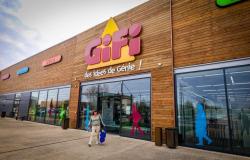The American laboratory Pfizer is under pressure from an activist fund, Starboard, which has just acquired $1 billion worth of shares in the laboratory, reports the Wall Street Journal . The fund intends to weigh on the strategy of Pfizer, whose financial performance has disappointed investors in recent months.
To do this, he sought to rely on former Pfizer executives, Ian Read, general director between 2010 and 2018, and Franck D’Amelio, financial director between 2007 and 2021, specifies the financial newspaper. « They showed their willingness to help »underlines the Wall Street Journal.
Fall in revenue linked to Covid
During the pandemic, Pfizer stood out as one of the main suppliers of vaccines and treatment against Covid with Moderna. Its revenues exceeded $100 billion. But the aftermath was more difficult, as populations grew tired of repeated injections and learned to live with the virus.
Last year, Pfizer’s vaccine only generated $12.5 billion in sales, compared to $57 billion in 2022. In December, the publication of disappointing growth prospects for 2024 stunned the markets. The current valuation of the American laboratory ($162 billion) is half that which it was during the pandemic. It is lower today than it was in 2019.
No other drug marketed by the laboratory is likely in the short term to compensate for the colossal shortfall from Covid. Pfizer’s attempt to enter the thriving market for appetite suppressants has – for the moment – ended in initial failure. Another drug in this indication is currently undergoing clinical trials.
Giant acquisition
To redress the situation, the boss of Pfizer, Albert Bourla, is focusing above all on treatments against cancer. Building on the revenues accumulated during the pandemic, the laboratory has made numerous acquisitions, including that of Seagen, specializing in conjugated antibodies, for $43 billion. Albert Bourla estimates that this activity will generate $10 billion in annual revenue by 2030.
In the meantime, the boss has cut costs. A $3.5 billion savings plan was announced last December. Another, covering several years, was unveiled this summer.
Today, Albert Bourla plays his position. « When former executives team up with an activist investor to “help” a struggling company, it’s often bad news for the current CEO. », underlines the Wall Street Journal. Investors criticize the current boss, among other things, for an insufficiently disciplined approach.
Few options on the table
But what room will Starboard have to recover the stock price of Pfizer? Narrow, analysts estimate. There are no longer many “easy to take” measures. The current boss has already made significant savings. The acceleration in sales of Pfizer’s new treatments, such as the respiratory syncytial virus (RSV) vaccine, is very uncertain. Finally, Pfizer’s level of debt, high after the $43 billion acquisition of Seagen, no longer allows it to embark on expensive purchases that could have enriched the laboratory’s drug portfolio in the short term.
There remains the possibility of selling some non-strategic assets, such as hospital products. In the past, Pfizer has already separated from its consumer health branch to focus on innovative drugs. Merged with that of GSK, Haleon is listed on the stock exchange. Pfizer could sell part of its remaining stake in this company which markets Sensodyne. The 1is October, Pfizer has already sold $3.3 billion worth of Haleon shares, bringing its stake to 15%.






